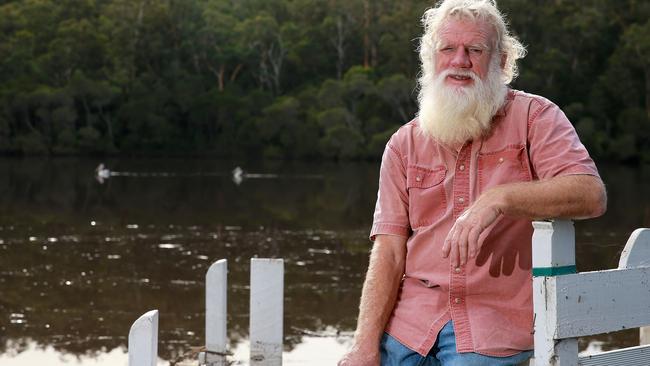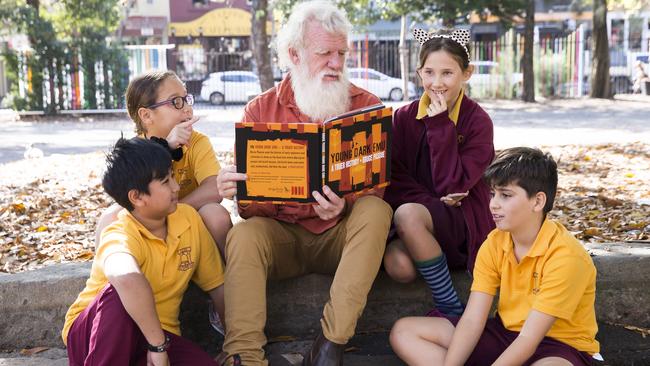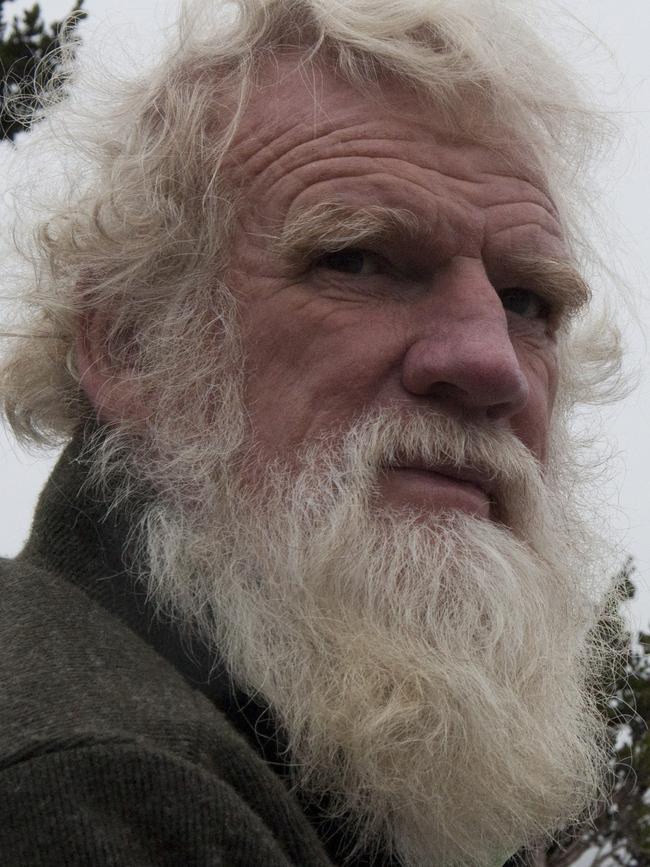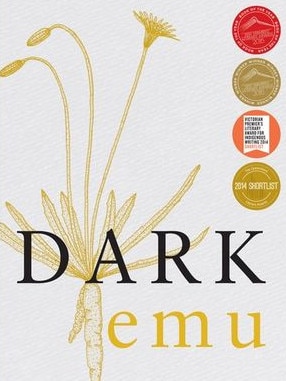Andrew Bolt: Truth about Dark Emu doesn’t count in poison of identity politics
Huge doubts surround author Bruce Pascoe, his Aboriginal “history” and the wild claims he makes in Dark Emu, but identity politics have made it racist to question someone who claims to be indigenous, writes Andrew Bolt.
Finally! “Aboriginal author” Bruce Pascoe has replied to my questions about his identity and bizarre book, Dark Emu.
And ABC presenters also responded after I asked why their ABC will run a TV series starring Pascoe and his anti-white “history”.
But they’ve just made this farce worse.
Pascoe still won’t give a straight answer and the ABC presenters’ abuse proves they don’t care about facts. This is tribal.
As I wrote on Monday, the very white Pascoe has repeatedly claimed he’s Aboriginal. What’s more, his book claims Aborigines were not what historians have said — primitive hunter-gatherers — but sophisticated farmers in towns of up to 1000 people.
This startling reinvention has been celebrated by the cultural Left. Dark Emu won Book of the Year at the NSW Premier’s literary awards and a new children’s version of this bestseller is in many schools.
But wait. Are Pascoe’s claims actually true or a laughable invention?
On Monday I wrote that researchers on the dark-emu-exposed.com website have extensively fact-checked Pascoe and his book.

For a start, their records suggest Pascoe does not have one Aboriginal ancestor. Sure, they may have made a mistake, but Pascoe won’t answer my written questions.
But on Monday he did emerge on the ABC’s Statewide program in Victoria to claim that the researchers had failed to research “the entire family”.
And he repeated: “My family is Aboriginal. It goes back to our great-grandmothers.” He was not asked to name which ones.
In fact, the researchers’ records suggest Pascoe’s great-grandmothers are Sarah Matthews (born in England), a Mrs Smith (born and died in England), Elizabeth Jane Hall (parents born in England) and Rebecca Arnold (father born in England, mother’s parents born in England).
Unfortunately, the ABC also failed to ask Pascoe about my evidence that he’d misquoted explorers’ accounts to claim that Aborigines had big overhead grain stores and had harvested huge fields.
Let me give more examples of how wildly Pascoe misquotes his sources, making Aboriginal society look more advanced and white settlers more cruel.
Charles Sturt is one of our most famous explorers and Pascoe repeatedly cites his famous 1849 Narrative of an Expedition into Central Australia.

Sturt writes there that his exhausted expedition was past Cooper Creek with “our horses” (plural) when it was “suddenly hailed by 3 or 400 natives”.
These Aborigines fed the explorers and said could sleep in “a large new hut”, which Sturt doesn’t describe.
Pascoe, particularly in his lectures and interviews, has embroidered all that. He’s claimed that Sturt’s men had in fact “eaten all their horses but one” (false) when they met “nearly 1000 people” (exaggerated), in a “town” (exaggerated) — a “little model community with timber and thatch houses” (invented).
He says Sturt was offered “the pick of the houses” (no longer just huts) “in a new estate” (as in housing estate).
In Dark Emu, Pascoe invents more details in this “town” that Sturt never described: “The smaller huts … were full of stored produce. Yards attached to these store houses were used as animal holding pens.”
Really? What animals would the Aborigines have kept in those “animal holding pens” in that parched land? Dingoes?
Sturt also wrote how surprised he was by “the smallness of the waterhole, on which these people depended”.


Pascoe vastly exaggerates that, too: “(The Aborigines) had dug a well which I think was 70 foot deep … That’s an engineering feat.”
Sturt describes women in this camp grinding seed “between two stones”, making a noise “like the working of a loom factory”.
Pascoe quotes that passage in Dark Emu, but elsewhere in the book refers to “Sturt’s description of the evening whirring of hundreds of mills grinding grain into flour”.
Two stones become “hundreds of mills” — and Pascoe has his Aboriginal “agricultural industry”.
Why haven’t professional historians called out Pascoe? And why did the ABC think it should promote his book as the history of this nation?
Part of the reason is suggested by the reaction of ABC presenters to my column on Monday.
Benjamin Law declared that “if Andrew Bolt’s publicly s---ting himself over (Dark Emu), you know it’s good.”
Patricia Karvelas sneered that I seemed “triggered” by thoughts of Aborigines being farmers and Virginia Trioli retweeted a tweet calling me a racist.
Yes, this is the modern poison of identity politics. The truth doesn’t count. In fact, it’s racist to even question wild stories from someone claiming to be Aboriginal.
What counts is the tribe. And if you can smash the white one, good.
